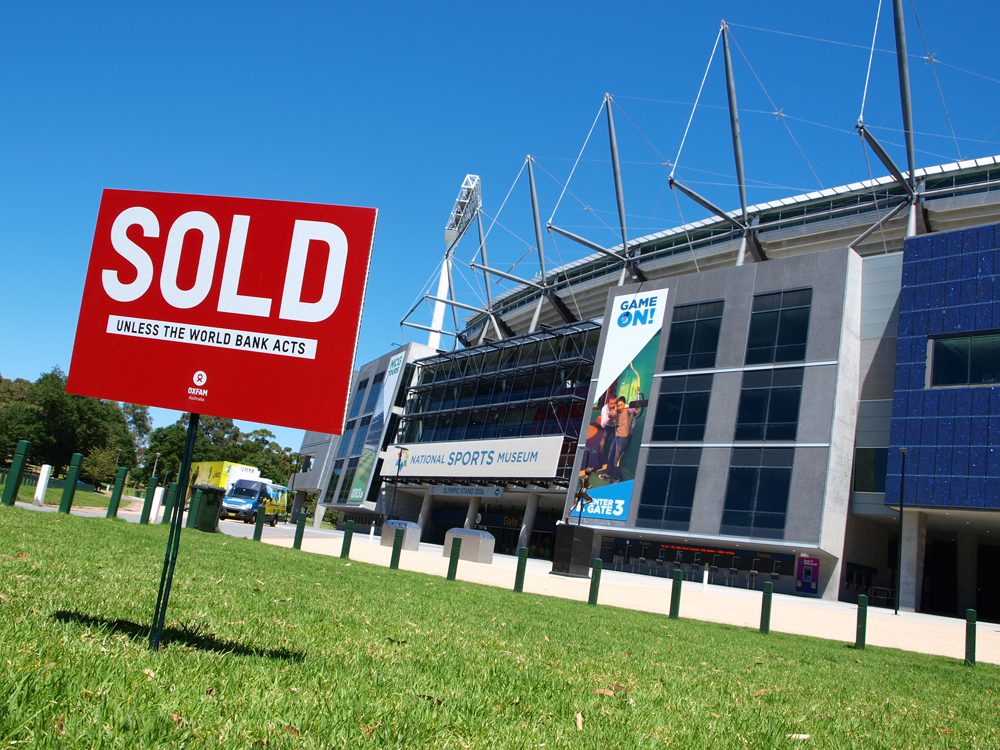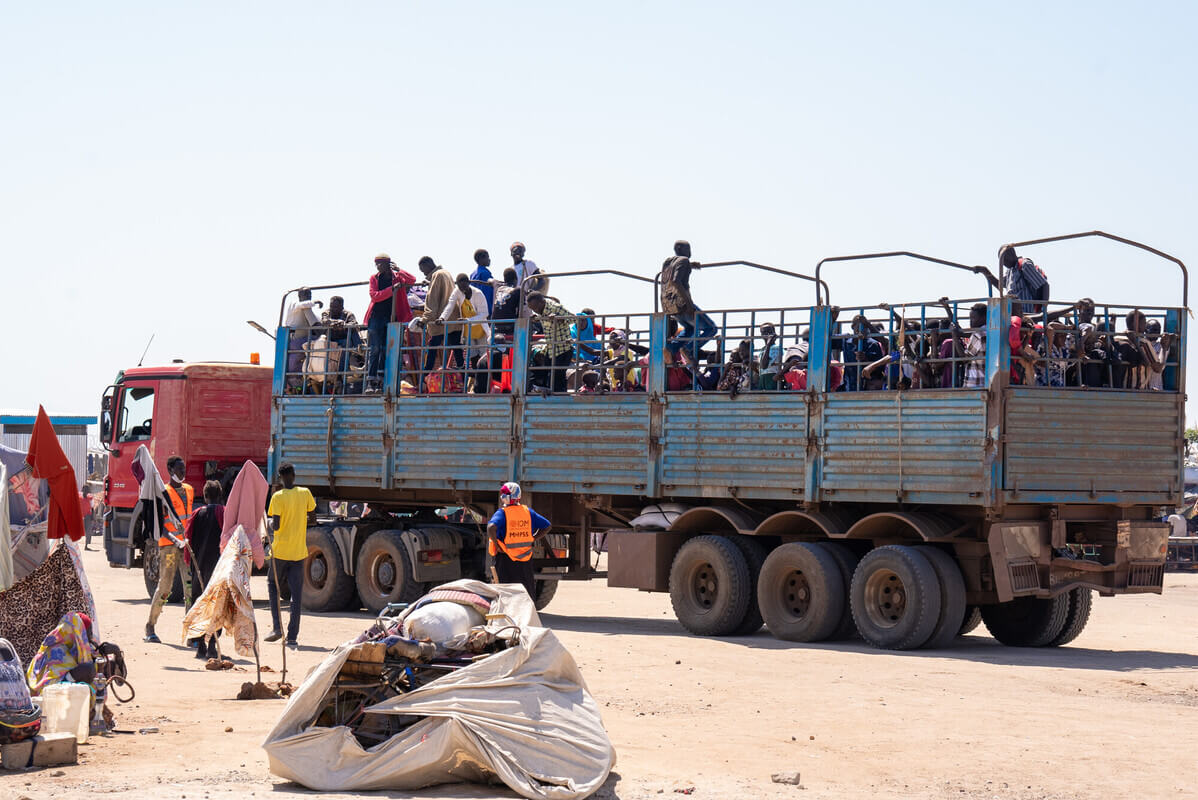Sold signs have been placed next to iconic land marks in several cities around the world, as Oxfam calls for action to stop land grabs in developing countries.
Big land deals are tearing whole communities apart, leaving people hungry and homeless. It’s big business at a big cost. But the World Bank has the power to be a force for good. With your help, it can protect the rights of the world’s poorest people.
Factors like rising food prices and a demand for new fuels have caused a huge rush of big land deals.
Deals are done on an area of land the size of a soccer pitch every second.
Poor families are losing the land they rely on to grow food – often evicted without fair treatment or compensation.
The World Bank funds many big land deals. It also influences how land is bought and sold. So this means it has the power to help get the situation back under control. We need your help to call on the Bank to play an important role in stopping land injustice.
Oxfam affiliates across the world worked with activists to ‘grab’ well-loved landmarks and places on 7 February 2013. They ‘grabbed’ monuments and places that are nationally and/or internationally recognized, with SOLD signs in front of them.



